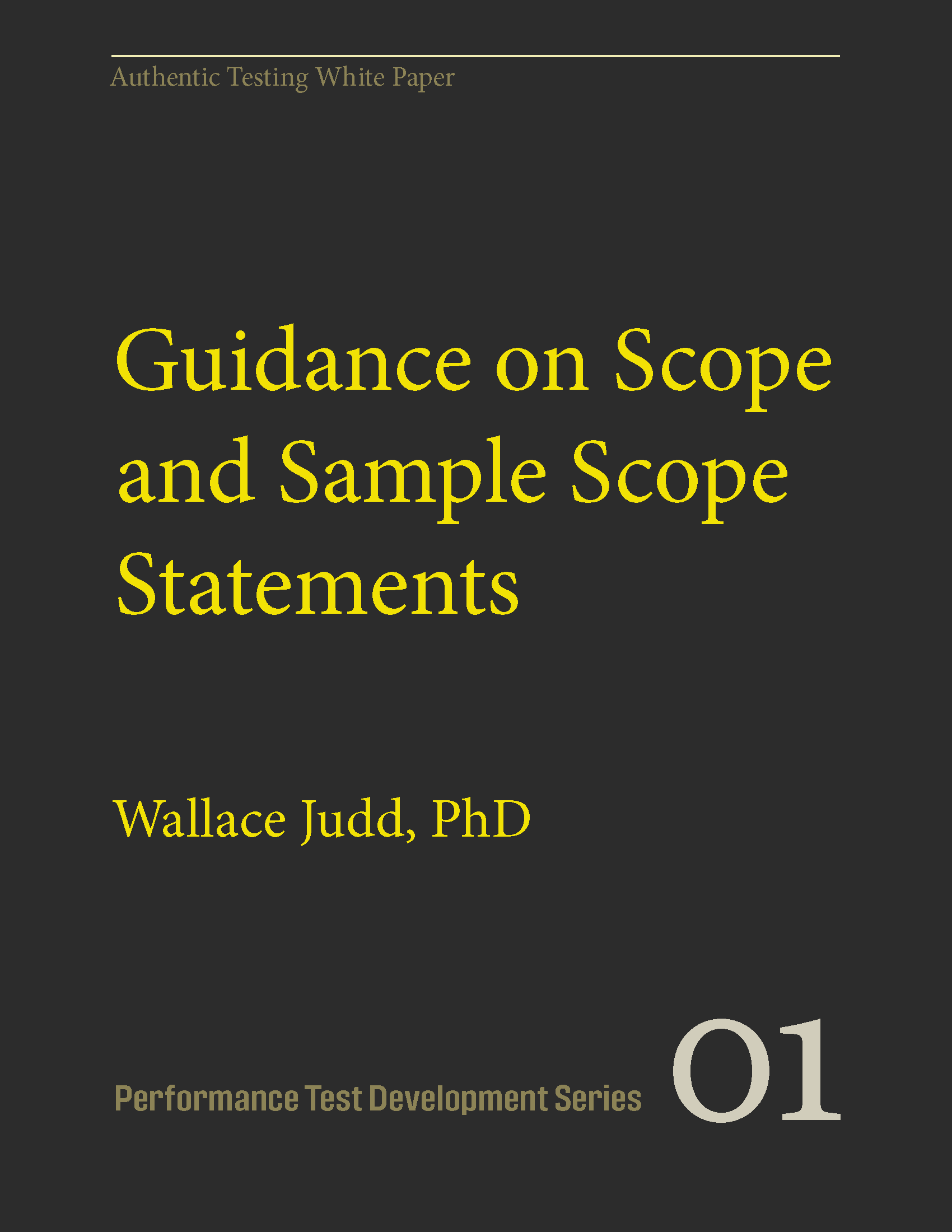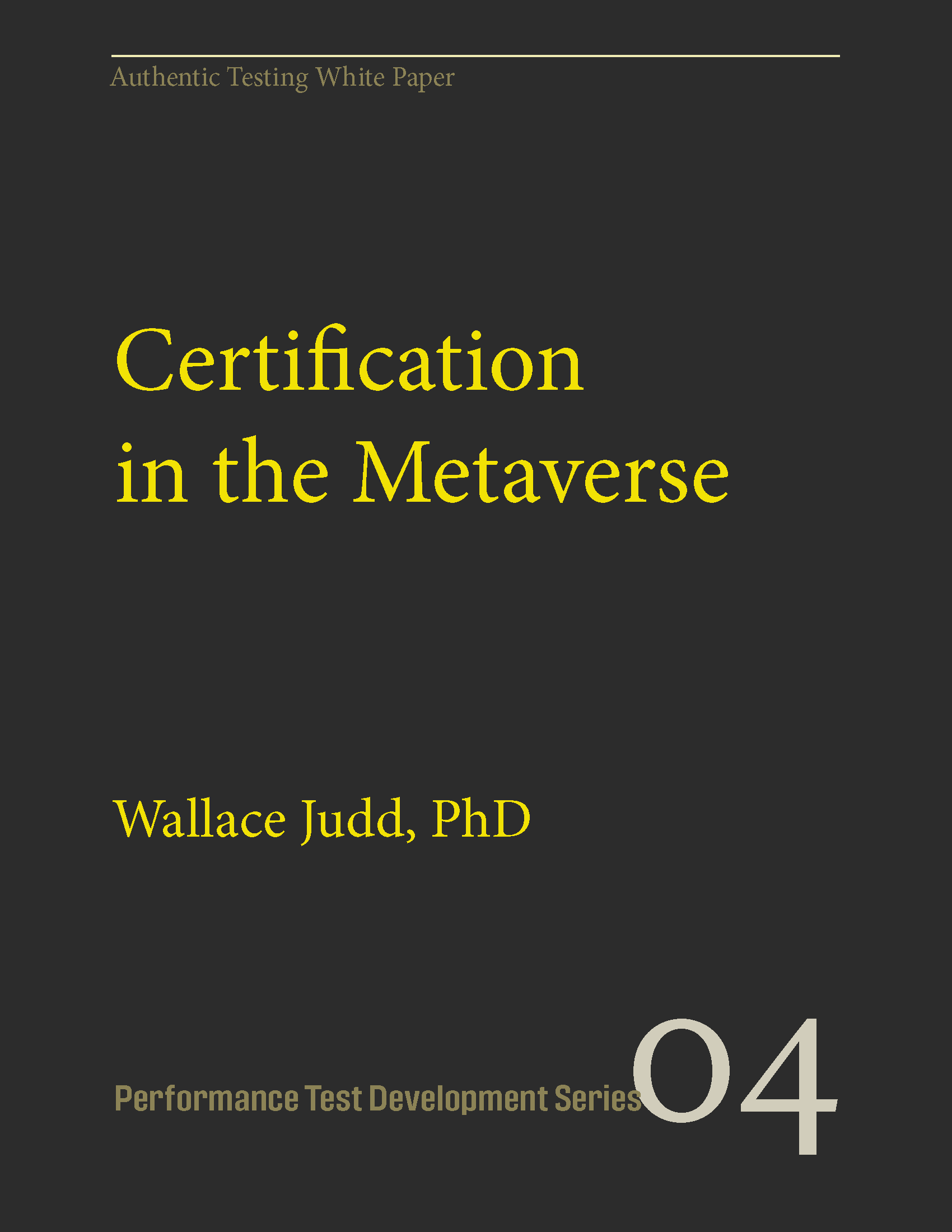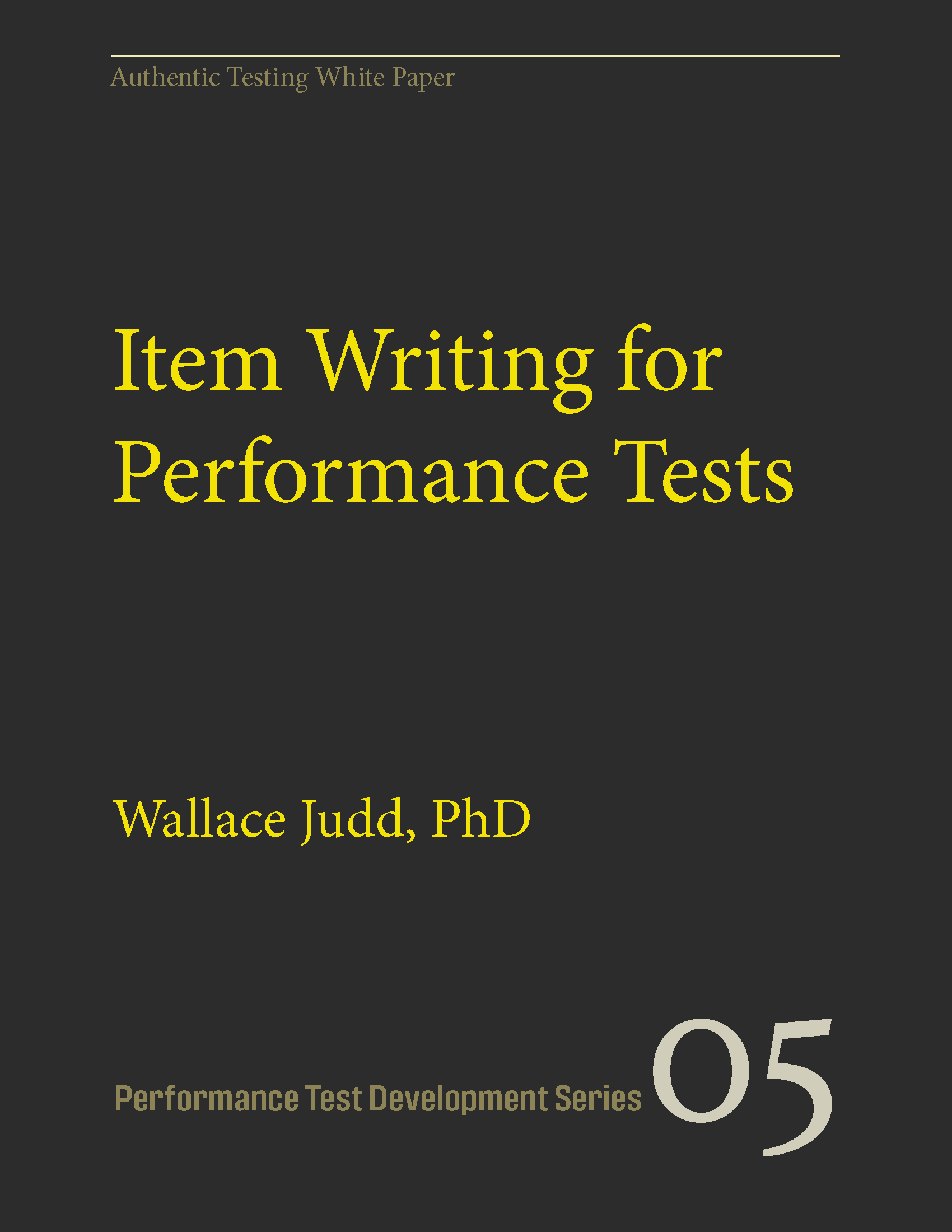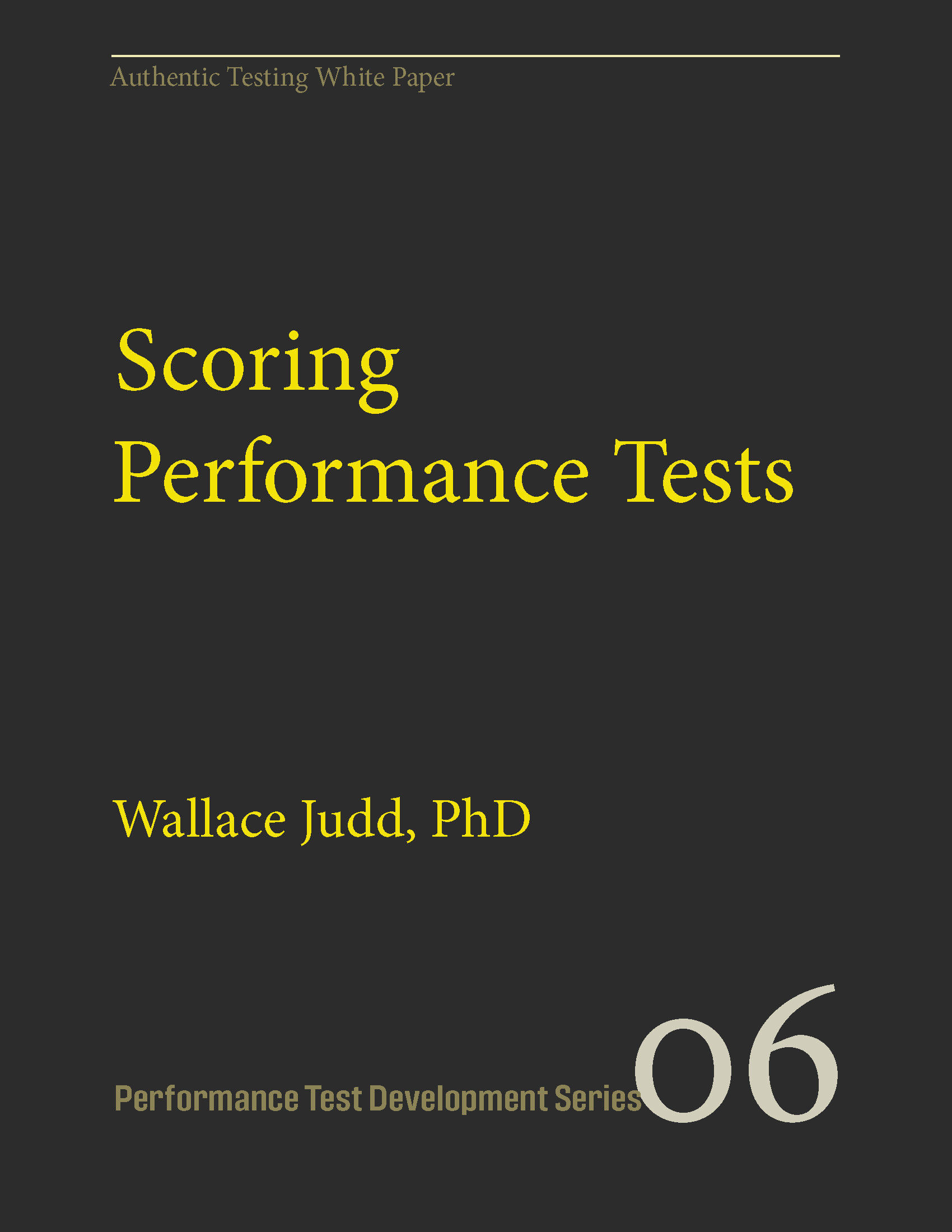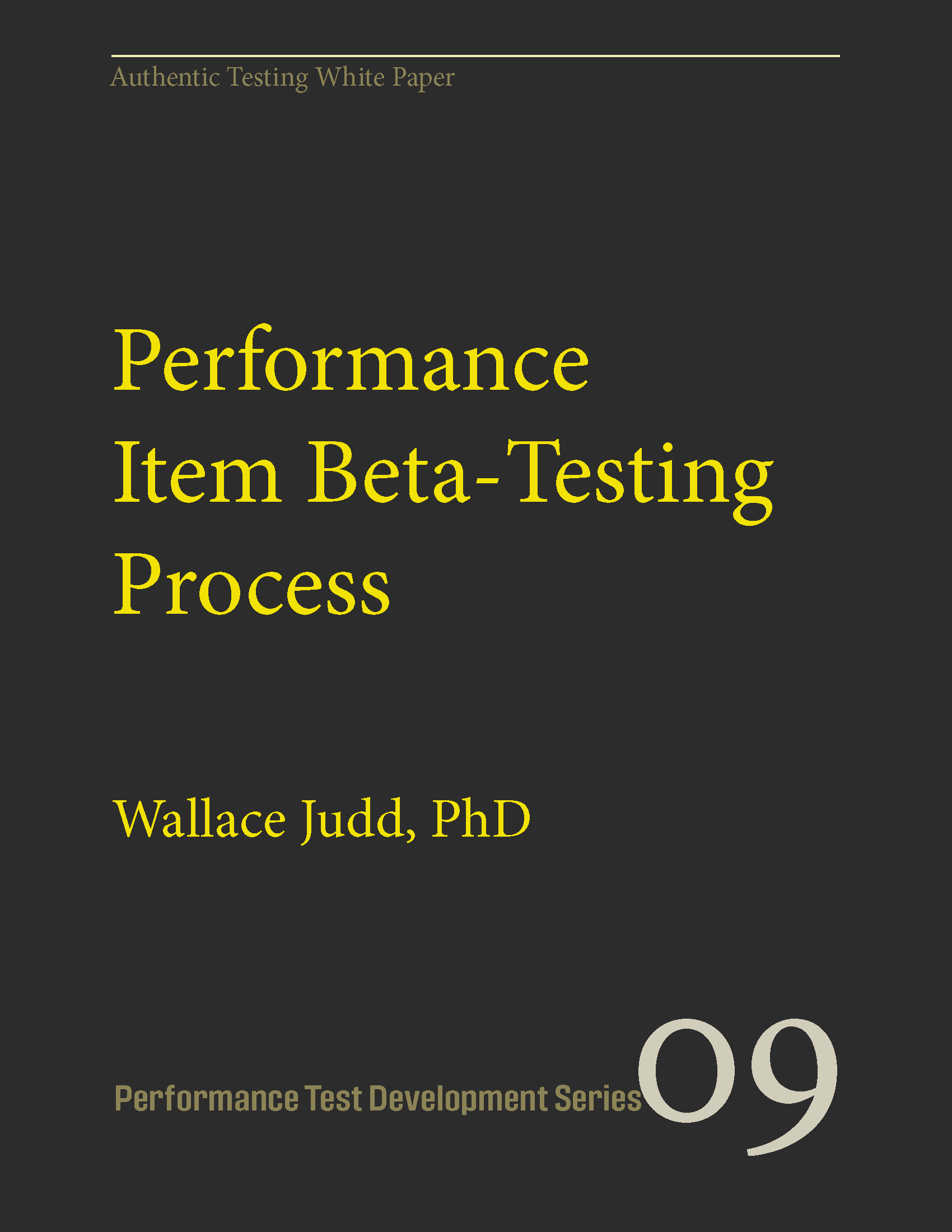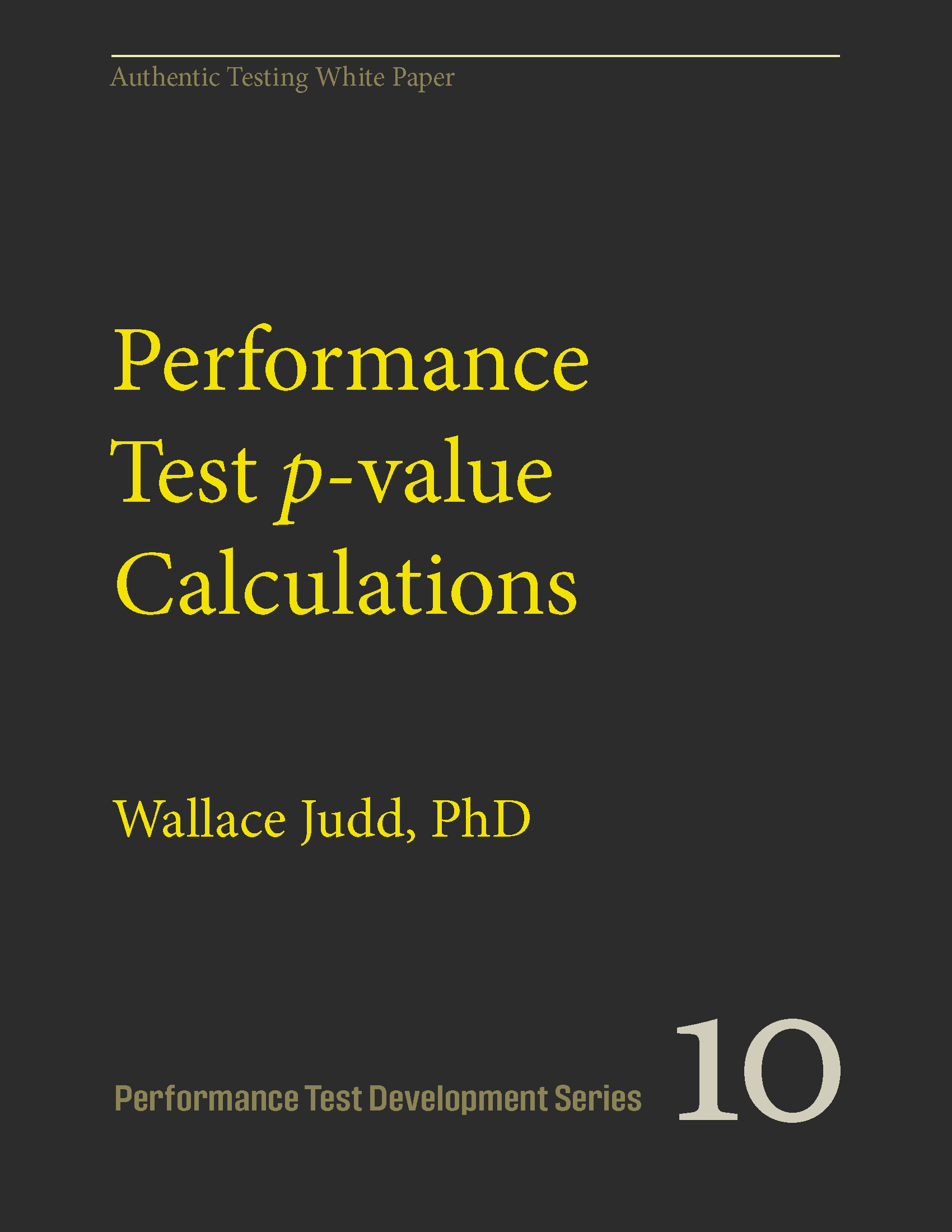White Papers.
Learn more about performance testing with our in-depth white papers.
Performance Test Development Series.
In a series of white papers, Wallace Judd, Ph.D., provides advice on performance testing topics from initial concept to test delivery.
The papers are intended to be a resource for test developers, illustrating best practices in the performance-testing industry.
These topics are presented in simple language for non-psychometricians.
The mathematics of any topics are expressed in abbreviated terms instead of the Greek alphabet, and all computations are illustrated in Excel examples.
We hope this compilation will expand access to performance testing to a wider audience of practitioners, and inspires them to explore the possibilities inherent in performance testing.
Tools For You.
Here are three Excel spreadsheets that you can download and use to help you with your testing program. Each spreadsheet comes with documentation in Word that explains how to use the spreadsheet.
AuTe Performance Test Score Calculators.
AuTe p-value Calculations.
AuTe Bias Calculator.
The Bias Calculator will help you determine whether your test exhibits bias, as defined by the EEOC guidelines. The guidelines may have changed since we put this up, so please be sure to check the current guidelines if you use the sheet.
Domain Weighting Tally.
In order to determine how many items are in a domain, and how much scoring weight to give the items in each domain, you will need to have a group of Subject Matter Experts (SMEs) vote on the weights. This spreadsheet allows you to see what the weight for each domain should be according to the vote of a committee. It even highlights domains for which there is substantial disagreement, so you can discuss and possibly resolve the weights for these domains.
Scaled Score Converter.
Often you don’t want to report a raw score – you want to report a scaled score. The college boards, for example, report a scaled score from 200 to 800. This spreadsheet lets you convert your raw score into a scaled score which you define.

